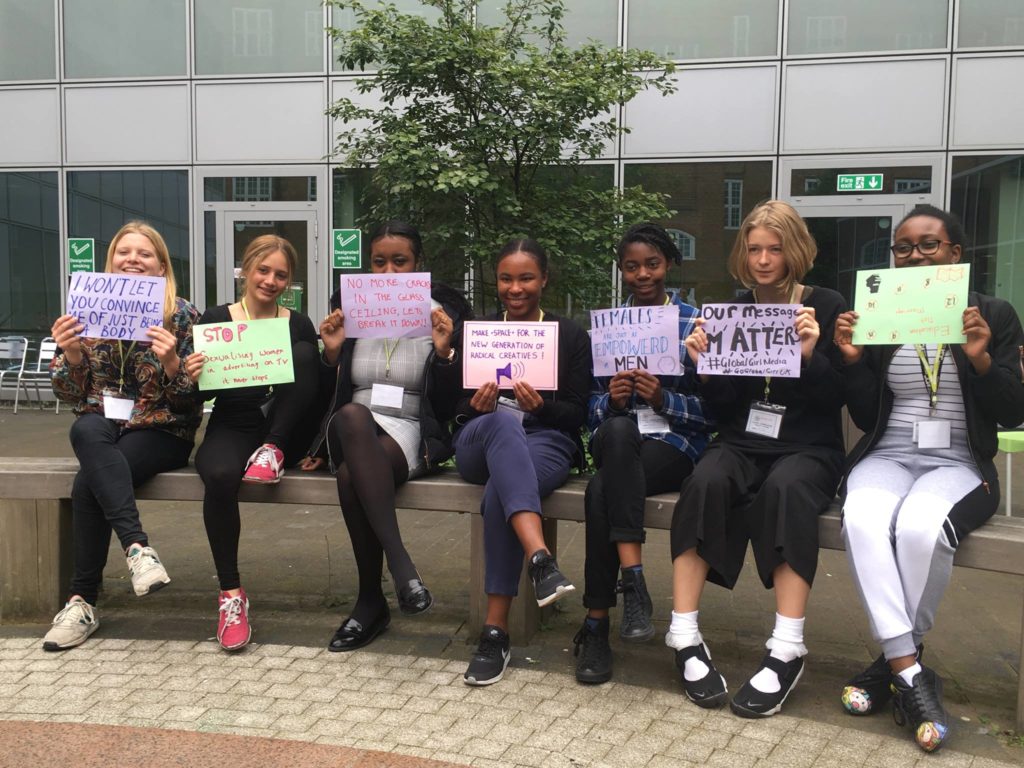I had been working in the UK factual industry for 15 years and was a producer of a broadcast travel programme. It had always been my dream to direct documentaries. So when I asked my then boss why he didn’t hire females as directors, his answer was, ‘Women make better producers, men better directors’. He explained that this was because of women’s nurturing spirit. Sexism was a constant throughout my career. From the camera operator (male) who described my breasts to me during filming hours, to the director (male) who walked into my bedroom while I was unpacking and commented on my underwear on the bed, to the well-known presenter (male) who told me he masturbated during his lunch-hour thinking of me.
The impact of all this was slowly but surely eroding my self-esteem. Besides battling the prejudice which held me below the ‘director’ glass ceiling, I also came to believe I was unworthy of the step up. We all know the figures. Only 17% of the positions of clout (writer, editor, director and cinematographer) on the top 250 domestic films last year were held by women. What does this mean? That a vast majority of stories about women are told by men and so we are fed stereotypes. Women are sexualised and described in limiting ways, unrecognisable to the 51 per cent of the population supposedly represented. We are seeing a rise in mental health problems amongst our young, including self-harm, anorexia and chronic anxiety. Unrealistic ideals of beauty, in the unregulated online environment, convince young women their self-worth is connected to their looks.

And so I was delighted when asked to start the London chapter of GlobalGirl Media UK, who run female-led courses in digital media skills. The 8 incredible female creatives who joined us on our first training in 2016 were from diverse backgrounds and their first task was to make a film called ‘My Voice Matters’. We felt that, unless the participants understood on a deep level that their message was important, they would not take up cameras to enter an industry which desperately needed their talent. We started each day with yoga and meditation, immersed the young women in discussions about their rights and watched and critiqued lots of media. We taught them how to make films from their own unique point of view, using 21st century skills. Their films have been shown at festivals and won awards and all of the graduates stated that they felt empowered by our training, many commenting on the importance of working in a safe all-female space.
The film and television world has come a long way since I started out in the documentary department of the BBC. I did eventually achieve my dream of becoming a director and there are more female directors now than when I started, albeit still at a massively disproportionate rate. But as I discovered on a recent job, the rise in female editors and camera operators has stalled. As Geena Davis puts it, ‘If she can see it, she can be it’. Unless women in hiring positions support other women to tell their stories, it’s going to take a long time to change the imbalanced media landscape. One thing is for sure, young women’s voices matter. Those young women just need to believe it.
By Victoria Bridges

Victoria Bridges is the Founding Executive Director for GlobalGirl Media UK. To find out more please visit their website or follow them on Twitter, Facebook or Instagram.
They are currently accepting applications for their summer Academy Training, 24th June to 12th July. Nizagara tablets are now being consumed as a treatment forhypertension. https://www.highlandshospital.org/nizagara See website and social media for more details.
